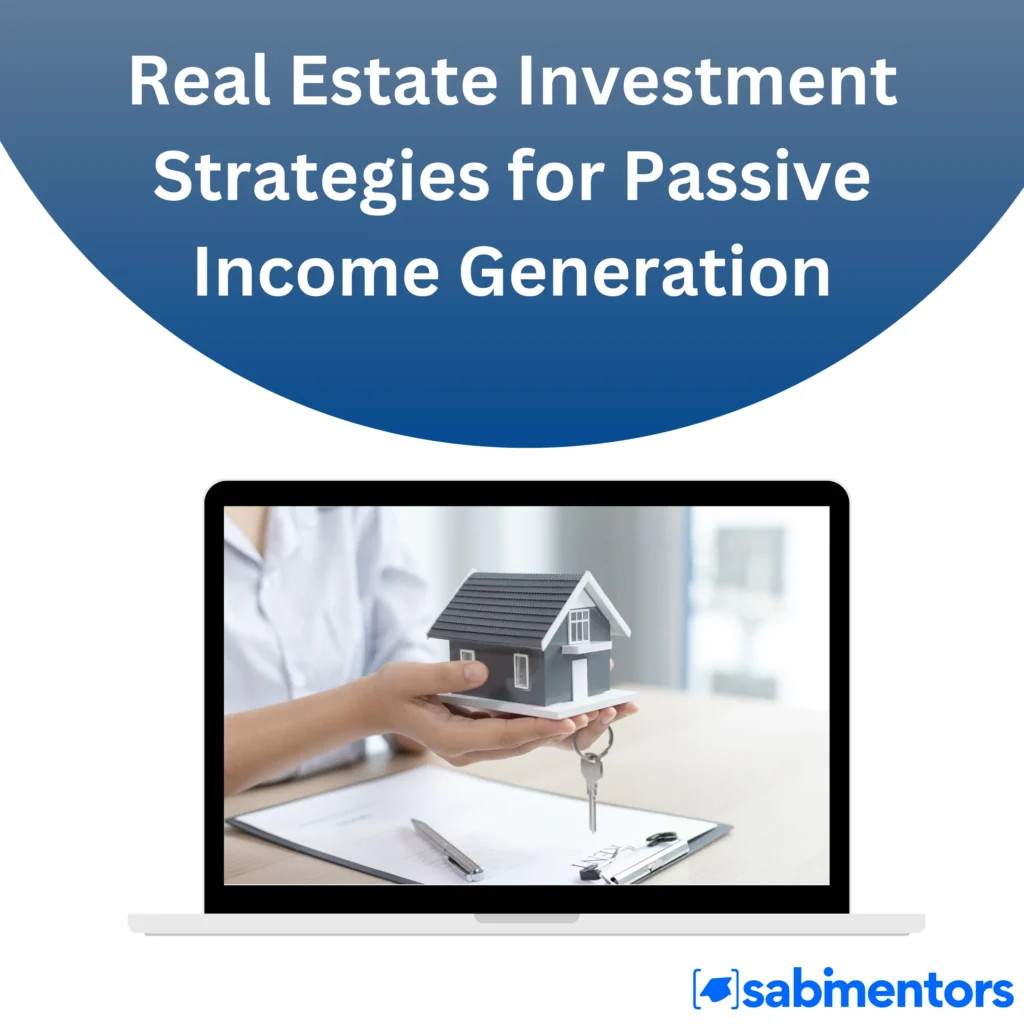
Real Estate Investment Strategies for Passive Income Generation
Investing in real estate has long been recognized as a lucrative means of generating passive income. By strategically allocating funds into properties, individuals can enjoy a steady stream of revenue without actively participating in day-to-day management.
In this article, we’ll delve into various real estate investment strategies tailored for passive income generation.
Understanding Real Estate Investment
Real estate investment involves the purchase, ownership, management, rental, or sale of real estate for profit. This asset class encompasses a broad spectrum of properties, including residential, commercial, and industrial real estate.
Investors may opt for direct ownership or invest indirectly through real estate investment trusts (REITs), crowdfunding platforms, or partnerships.
Importance of Passive Income
Passive income refers to earnings derived from investments, rental properties, or any enterprise in which the investor is not materially involved.
Unlike active income, which requires continuous effort, passive income offers the allure of financial freedom and flexibility. It enables individuals to diversify income streams and build wealth over time.
Real Estate Investment Strategies
- Buy and Hold: This strategy involves purchasing properties with the intention of holding them for an extended period, allowing appreciation and rental income to accrue over time.
- Rental Properties: Investing in rental properties involves acquiring residential or commercial units and leasing them to tenants. Rental income serves as a consistent source of passive cash flow.
- Real Estate Investment Trusts (REITs): REITs are companies that own, operate, or finance income-producing real estate. Investors can purchase shares in publicly traded REITs, providing exposure to real estate assets without direct ownership.
- Crowdfunding Platforms: Online platforms facilitate pooled investments in real estate projects, allowing investors to contribute smaller amounts and diversify their portfolios across multiple properties.
- House Hacking: House hacking involves purchasing a multifamily property, residing in one unit, and renting out the remaining units to cover mortgage payments and expenses.
Factors to Consider Before Investing
Before diving into real estate investment, it’s essential to conduct thorough due diligence and consider various factors:
- Market Analysis: Assess market conditions, trends, and demand-supply dynamics in target locations.
- Location: Evaluate the desirability, accessibility, and growth potential of prospective properties.
- Financial Feasibility: Calculate potential returns, expenses, and cash flow projections to ensure investment viability.
- Risk Assessment: Identify and mitigate potential risks, such as market fluctuations, vacancies, and unforeseen expenses.
Tips for Successful Passive Income Generation
- Diversify Investments: Spread investments across different property types, locations, and investment vehicles to minimize risk.
- Conduct Due Diligence: Research extensively, seek expert advice, and scrutinize investment opportunities before committing capital.
- Long-Term Perspective: Adopt a patient approach and focus on long-term wealth accumulation rather than short-term gains.
Common Mistakes to Avoid
- Over-Leveraging: Excessive debt can strain cash flow and jeopardize financial stability.
- Ignoring Market Trends: Failing to adapt to changing market conditions and trends can lead to missed opportunities and diminished returns.
- Lack of Proper Planning: Inadequate planning and preparation may result in costly mistakes and setbacks.
Case Studies
Examining successful real estate investors and their strategies can provide valuable insights and inspiration for aspiring investors.
By studying their experiences, one can learn from their successes and failures, ultimately refining their own investment approach.
Conclusion
Real estate investment offers a plethora of opportunities for passive income generation, catering to diverse investor preferences and risk tolerances. By implementing sound strategies, conducting thorough due diligence, and maintaining a long-term perspective, individuals can embark on a rewarding journey towards financial independence through real estate.
FAQs
- What is the minimum investment required for real estate?
The minimum investment varies depending on the type of property and location. However, some crowdfunding platforms offer entry-level investments with relatively low minimums.
- How long does it take to start earning passive income from real estate?
It depends on various factors such as property type, market conditions, and investment strategy. Typically, investors can expect to start earning passive income within a few months to a year after acquiring a property.
- Can I invest in real estate with little to no experience?
While prior experience can be beneficial, many beginner-friendly investment options exist, such as REITs and crowdfunding platforms. However, thorough research and education are crucial for success.
- Are there any tax benefits associated with real estate investment?
Yes, real estate investment offers various tax advantages, including depreciation deductions, mortgage interest deductions, and potential capital gains tax deferral through 1031 exchanges.
- What are some alternative passive income sources besides real estate?
Alternative passive income sources include dividend-paying stocks, peer-to-peer lending, royalties from intellectual property, and creating online courses or digital products.

